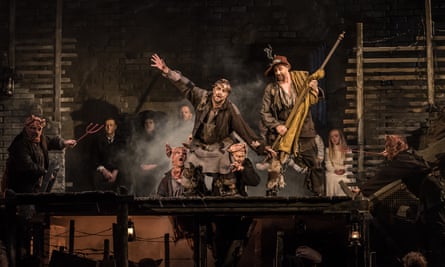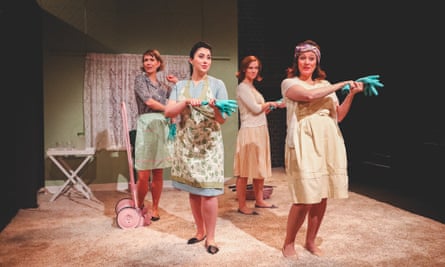Spare in gesture, supple in action, Mitsuko Uchida does the maximum a musician can to allow composer rather than interpreter to speak. Yes, it’s an illusion. No one works harder to achieve this state of near disappearance than the Japanese-born, European-educated, London-based pianist. And while she’s busy vanishing, you can hardly fail to notice her. Her personality is striking. She may prefer to spend the day in her Notting Hill studio, working alone at one of her four grand pianos, but she’s no recluse. She can talk as fast as she plays. She’ll sign CDs. She’ll go to other musicians’ concerts. She listens and laughs.
Yet the moment her hands touch the keyboard she enters a different realm. In the case of Schubert, whose ever mysterious piano sonatas have acquired their own mythology of transcendence, this is necessary. If the gods are smiling it’s all but inevitable. For several weeks Uchida has toured a body of these works, including the three last, great sonatas written at speed in the final weeks of Schubert’s life. After Snape, Cambridge, Saffron Walden, Birmingham and venues abroad, she gave two concerts last week in the Southbank Centre’s International Piano series at the Royal Festival Hall.
The first, on Tuesday, spanned early, middle and late, whatever that means for a composer dead by the age of 31: D664 in a A major (1819), D894 in G major (1826) and D958 in C minor (1828). As so often in Schubert’s case, the story is fraught. Attempting nearly two dozen sonatas, he completed 11 and had only three published in his lifetime. His devotees included the younger composer Robert Schumann (coiner of the much quoted phrase “heavenly length” to describe Schubert’s C major Symphony No 9). Some sonatas were published a few years after Schubert’s death, one patched together in a jigsaw of spare movements. Try doing that with a few unfinished paintings. Mostly, the sonatas were ignored until the middle of the 20th century.

Uchida, part of their saga of rehabilitation, has long performed and recorded them. On Tuesday she was at her most peerless and lyrical in the G major. The characteristic violent outbursts, tussling rhythms and flickering key shifts are there, but the dominant voice, at start and finish, is a whisper. She pedals lightly, and negotiates the fast, pianissimo runs, in all their wheedling chromaticisms, with apparently weightless grace.
Both the smaller A major and the grand, turbulent C minor sonatas had glimpses of paradise but were destabilised by fleeting lapses: Uchida’s innate sense of musical direction made for quick recoveries. Summing up the three composers closest to her in her four-decade career, she describes Beethoven’s vision as of the cosmos, Mozart’s as the drama of life and love. Schubert, however, is “between life and death; he dreams, with his eyes on the far horizon”. It’s a potent image. There’s nothing to add, except to urge anyone to discover this music.
Welsh National Opera’s strong autumn season, Russian Revolution in theme, ended its tour in Oxford last week. Bucking journalistic trends I went to the final performance of Janáček’s From the House of the Dead. Reports of this WNO rarity had made it sound essential. It was. David Pountney’s production (sung in his English translation) was first seen in 1982. The novelty here is John Tyrrell’s new critical edition, completed this year.
That may sound dry. Janáček left the work unfinished. It’s been much interfered with and reconstructed. At last, vitally, we can hear a score as close to the composer’s intentions as possible. It’s a stark, episodic work, telling the stories of inmates in a Siberian prison. Rape and death feature. Janáček, who wrote his own libretto based on Dostoyevsky, was fearless in tackling the raw and dark. Maria Björnson’s layered, gulag set, in shades of rust and mire, captured the mood. Ben McAteer, Paula Greenwood, Mark Le Brocq, Robert Hayward, Alan Oke and Adrian Thompson led an excellent, large ensemble cast. Above all this was a night for WNO’s music director, Tomáš Hanus – Janáček’s fellow Czech, born in Brno, where From the House of the Dead was first performed in 1930.

The score, requiring a large orchestra and extensive, bone-rattling percussion, springs from the same fount as Janáček’s Sinfonietta and Glagolitic Mass, composed shortly before. Folk song collides with swaggering brass and defiant, terse string writing. The WNO orchestra, under particular scrutiny given the absence of any pit in Oxford’s New Theatre, blazed and roared, urgent and precise. This is a fine ensemble. Hear their recent Shostakovich concert on Radio 3 iPlayer. The Royal Opera will stage its own world premiere production of From the House of the Dead next March. Can it be so good?
On its own scale, OperaUpClose does what it says. The mere thought of cutting Tchaikovsky’s Eugene Onegin, the perfect opera, down to size – any size – deals a blow to the soul. In a new English version by Robin Norton-Hale, orchestrated for piano, violin, clarinet and cello by Alison Holford and nimbly directed by Lucy Bradley, 10 singers did just that. Updated to 1960s suburbia, with most anachronisms except that awkward matter of the duel excised, it somehow conveys the work’s key emotions, even if the connective tissue, namely the glory of Tchaikovsky’s orchestration, is lost. Sonia Ben-Santamaria conducted from the piano with great flair.
Never mind whether you like the quasi-feminist ending: instead of being a dutiful married woman Tatyana is, not entirely convincingly, a bestselling author. Enjoy the energy and zest. Lucy Hall (Tatyana), Tom Stoddart (Onegin) and Cliff Zammit Stevens (Lensky) made a powerful trio of troubled young lovers, unlocking the dramatic floodgates in Act 2. The talented cast was unfaltering, even as their skirts brushed against our knees. Yes it was that close.

Eugene Onegin is at the Arcola theatre, London E8, until 23 December
Star ratings (out of 5)
Mitsuko Uchida ★★★★
From the House of the Dead ★★★★★
Eugene Onegin ★★★★

Comments (…)
Sign in or create your Guardian account to join the discussion